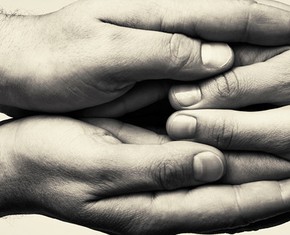The views expressed in our content reflect individual perspectives and do not represent the authoritative views of the Baha'i Faith.
Are men inherently more violent and warlike than women? Military researchers, psychologists, historians, and even the Baha’i teachings seem, at first glance, to answer yes to that question.
The proof of male violence certainly needs no further evidentiary support. Statistically, men commit approximately 90% of the world’s homicides every year. Very few female leaders, as far as we know, have started wars. Many observers have concluded, from this overwhelming evidence, that males are simply warlike creatures from birth, temperamentally and genetically pre-disposed to resolving conflicts through violence.
RELATED: Should Women Be Drafted? The U.S. Will Soon Decide
But here’s a more nuanced question: are men biologically hard-wired for war, or is it their social conditioning that makes them more susceptible to violent behavior? Let’s look at both the Baha’i teachings and the extant science to see if we can answer that one.
In a speech he gave in Boston in August of 1912, Abdu’l-Baha — the son and successor of Baha’u’llah, the prophet and founder of the Baha’i Faith — said “man is more inclined to war than woman:”
… strive to show in the human world that women are most capable and efficient, that their hearts are more tender and susceptible than the hearts of men, that they are more philanthropic and responsive toward the needy and suffering, that they are inflexibly opposed to war and are lovers of peace. Strive that the ideal of international peace may become realized through the efforts of womankind, for man is more inclined to war than woman, and a real evidence of woman’s superiority will be her service and efficiency in the establishment of universal peace.
A recent research article on this fraught subject — published in the journal of the Proceedings of the Royal Society in Britain in 2012, a century after Abdu’l-Baha’s talk — initially seems to agree with his conclusion:
… wherever there are social group divisions, there is some degree of conflict. Furthermore, where there is intergroup conflict characterized by violence, injury or death, we find that such acts of aggression are perpetuated almost exclusively by men. In fact, research suggests that men’s tendency to engage in coalitional aggression is manifest in all cultures, modern and traditional, and is therefore considered a human universal.
However, this theory, called “the warrior hypothesis” by psychologists and researchers, claims that men are biologically and chronically more violent — that they use violence to resolve their differences because of the inborn natural tendencies of their gender. In that formulation, men cannot avoid their innate instincts and testosterone-fueled hormonal drives toward violence, and therefore humanity is doomed to constantly engage in hostility and war.
RELATED: Will Humans Always Be Violent?
But the Baha’i teachings definitely do not subscribe to that theory, or accept any ideology that views human beings as incorrigibly selfish and aggressive. In fact, in a talk he gave in Paris, Abdu’l-Baha also said:
There are heavenly men and earthly men; self-sacrificing servants of humanity in the love of the Most High, bringing harmony and unity, teaching peace and goodwill to men. On the other hand there are those selfish men, haters of their brethren, in whose hearts prejudice has replaced loving kindness, and whose influence breeds discord and strife.
This view, unlike the warrior hypothesis, holds out hope for a peaceful world. If men are doomed by their DNA to always act in aggressive and violent ways, we really have little reason to look forward to a time when humanity could ever establish universal peace. But if men can decide, beyond any biological drives they may possess, to resolve their differences using peaceful methods, then we have hope.
Abdu’l-Baha wrote that the Baha’i teachings exalt that hope:
Now is the dawn of universal peace; my hope is that its morn will fully break, converting the gloom of war, of strife and of wrangling among men into the light of union, of harmony and of affection.
As described by Abdu’l-Baha in the book “Some Answered Questions,” that peaceful premise underpins the fundamental mission and promise of the Baha’i Faith:
… in this wondrous Dispensation the earth will become another earth and the world of humanity will be arrayed with perfect composure and adornment. Strife, contention, and bloodshed will give way to peace, sincerity, and harmony. Among the nations, peoples, kindreds, and governments, love and amity will prevail and cooperation and close connection will be firmly established. Ultimately, war will be entirely banned, and … arguments and disputes will, with perfect justice, be settled before a universal tribunal of governments and peoples, and any difficulties which may arise will be resolved. The five continents of the world will become as one, its divers nations will become one nation, the earth will become one homeland, and the human race will become as one family and one kindred. The light of heavenly love will shine and the gloomy darkness of hatred and enmity will be dispelled as far as possible. Universal peace will raise its pavilion in the midmost heart of creation and the blessed Tree of Life will so grow and flourish as to stretch its sheltering shade over the East and the West.
So while men may be more culturally “inclined to war” than women, the Baha’i teachings say, with work and spiritual struggle those inclinations can be conquered. From a Baha’i perspective, then, both men and women can look forward, in unity, to a peaceful future.
















Comments
Sign in or create an account
Continue with Googleor